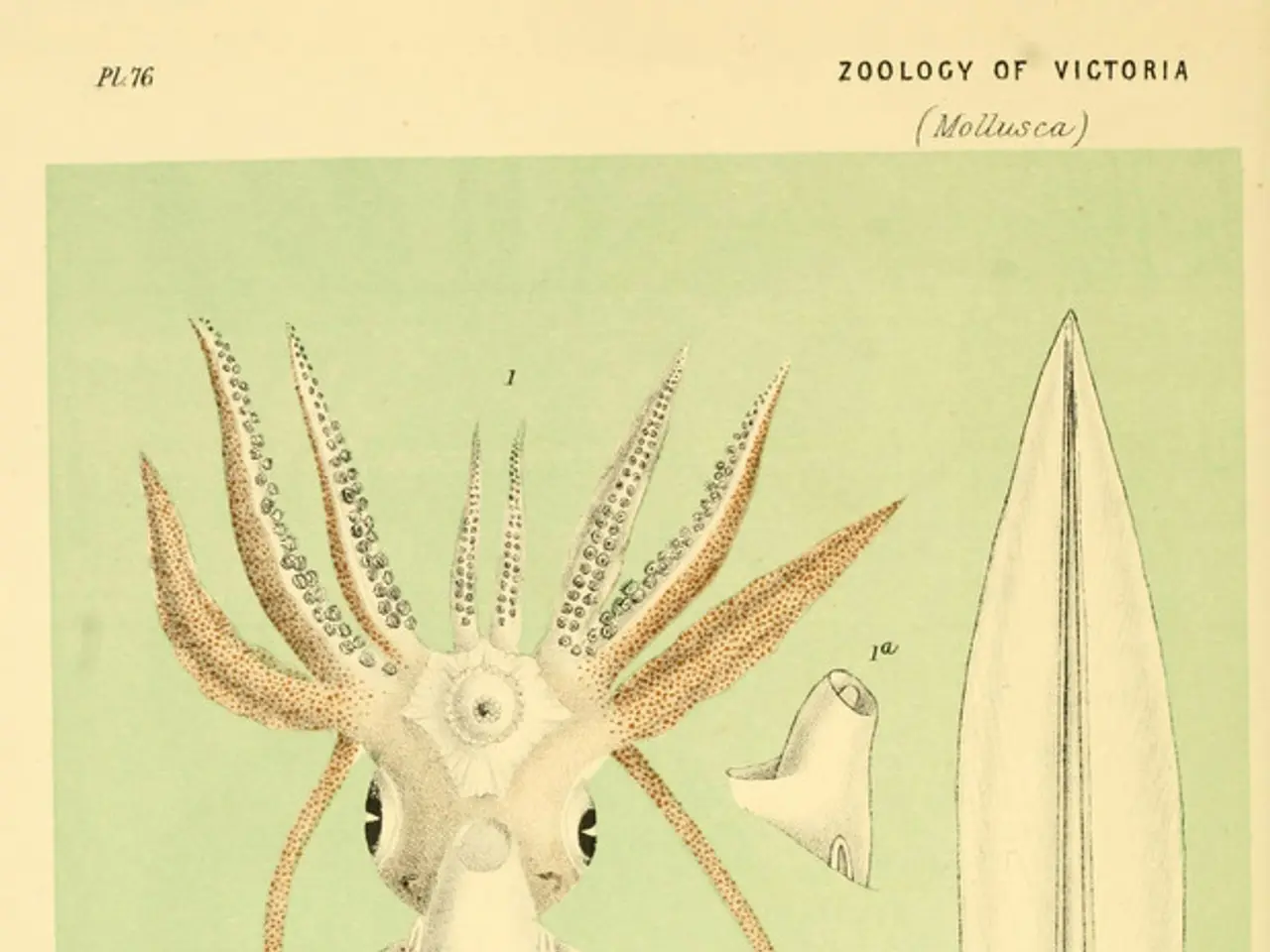Video captures massive squid roaming in its natural ocean environment for the first time
In the vast, mysterious depths of the ocean, a creature of immense size and intrigue has been captured on camera for the first time. On March 9, the U.S.-based Schmidt Ocean Institute's research vessel, Falkor, filmed a live colossal squid in its natural oceanic environment near the South Sandwich Islands. This groundbreaking discovery marks a significant milestone in marine biology.
The colossal squid, the world's most massive squid species, is a fascinating creature. It inhabits the dimly lit twilight zone of the sea, appearing transparent to avoid predators, earning it the nickname 'glass squid'. This elusive creature is also known for its unique set of tentacles, two of which have fully rotatable hooks at their ends.
One of the most striking features of the colossal squid is its eyes, the largest on the planet. These enormous orbs allow it to spot whale-sized predators from a considerable distance. Younger colossal squid inhabit shallower depths, but as they age and grow, they likely descend into the abyss.
Despite its formidable size, the colossal squid is not an apex predator. Elephant seals, penguins, and other fishes prey on juveniles, while sperm whales and sleeper sharks feast on younglings and adults.
The first confirmed sighting of a colossal squid was made 100 years ago, using remains found in a sperm whale's stomach. Since then, there have been sporadic encounters, such as the accidental ensnarement and fatal injury of a 30-foot specimen in the Ross Sea, near Antarctica, in 2007. A nearly 17-foot colossal squid was inadvertently caught by the Soviet trawler Eureka in 1981.
Recent advances in technology have allowed for more frequent and detailed observations of these elusive creatures. In March, a teenage colossal squid was filmed by the underwater robotic explorer SuBastian, 2,000 feet below the waves. Footage of a living colossal squid briefly caught on a fishing line emerged in 2005 from a boat in the southern Atlantic Ocean.
Most recently, the Okinawa Churaumi Aquarium captured footage of a foot-long colossal squid, leading scientists to conclude it was not a baby but possibly a teenage squid in mid-developmental stage. This discovery provides valuable insights into the growth and development of this enigmatic creature.
The colossal squid continues to captivate scientists and the general public alike, offering a glimpse into the unknown depths of our oceans. With ongoing research and technological advancements, who knows what other secrets this elusive creature may reveal?
Read also:
- Peptide YY (PYY): Exploring its Role in Appetite Suppression, Intestinal Health, and Cognitive Links
- Toddler Health: Rotavirus Signs, Origins, and Potential Complications
- Digestive issues and heart discomfort: Root causes and associated health conditions
- House Infernos: Deadly Hazards Surpassing the Flames








